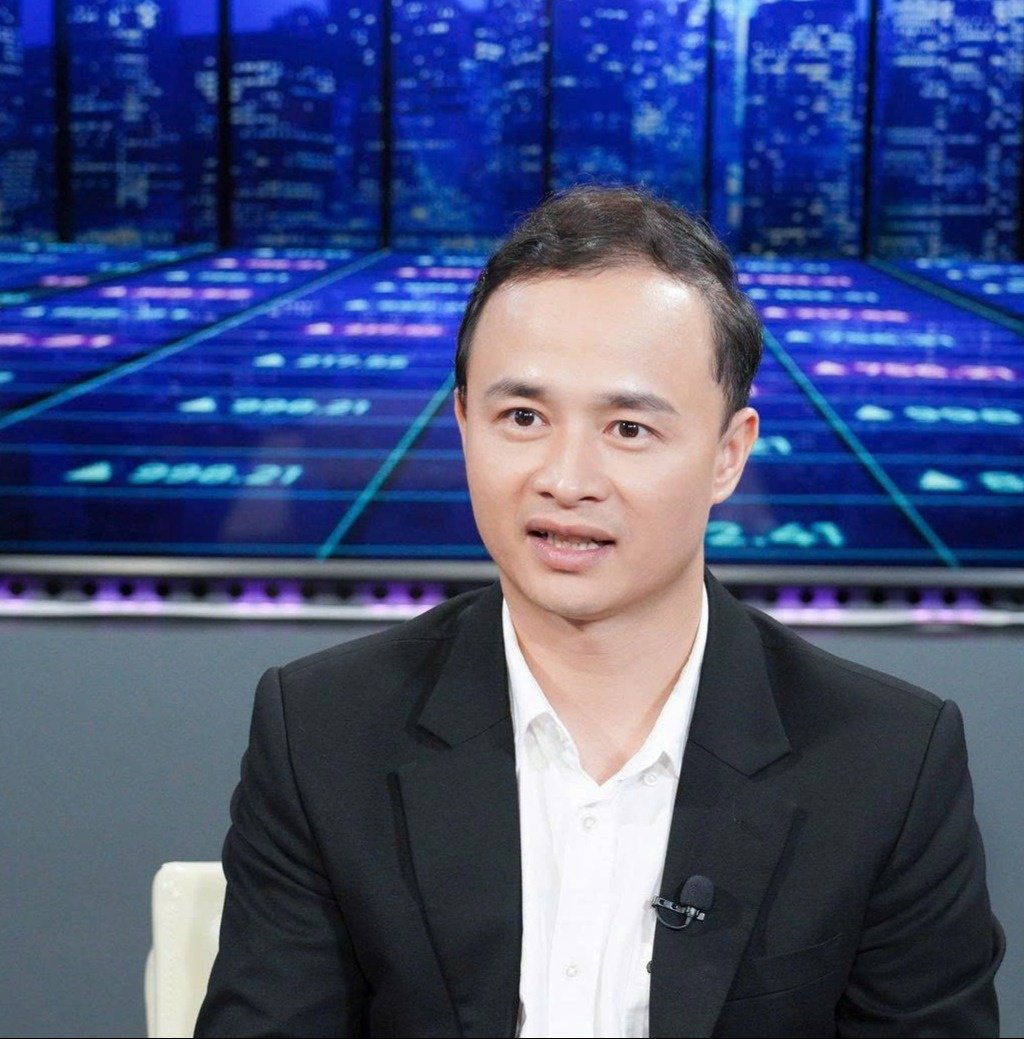 |
| Mr. Le Quang Chung - Deputy General Director of Smart Invest Securities Joint Stock Company (AAS) |
Foreign investors' "waiting for the right time" mentality
Mr. Le Quang Chung said that FTSE Russell's upgrade of Vietnam's stock market on October 8, 2025 is an important milestone, affirming Vietnam's new position in the eyes of international investors. However, immediately after the upgrade, the market's performance was somewhat mixed as foreign investors continued to sell strongly. In the week from October 20 to 24 alone, the net selling volume exceeded VND4,900 billion, bringing the total net selling value since the upgrade announcement to more than VND12,000 billion.
According to his analysis, this phenomenon does not originate from a single cause, but is the result of a combination of both global factors and internal factors of the Vietnamese market. First of all, it is necessary to recognize that interest rates in the US are still maintained at a high level. In the meeting on October 29, 2025, the US Federal Reserve (Fed) continued to reduce interest rates. This interest rate level is still high enough to keep large capital flows in the US market, where government bond yields remain stable and profitability is considered more attractive than in emerging economies .
In that context, the interest rate gap between VND and USD is increasingly narrowing, causing foreign investors to tend to maintain a defensive mentality, continuing to keep capital in the US to benefit from a safer financial environment. Global capital flows have not shown signs of leaving the US strongly, because although inflation has been controlled, the world's number one economy still needs more time to "cool down" after more positive employment and growth indicators than expected.
On the domestic side, Mr. Chung said that foreign investors' net selling is also associated with profit-taking and portfolio restructuring. After the VN-Index increased sharply to the 1,600-1,700 point range in the third quarter of 2025 thanks to expectations of upgrading and positive economic growth, many foreign investors took advantage of the opportunity to take profits in large-cap stocks such as banks, real estate or securities. This helps them restructure their investment portfolios, preparing for a new phase of the market. Although it creates short-term pressure, this is a natural development in the process of the market's transition to an emerging group.
He added that FTSE Russell's upgrade of Vietnam's market is only at the "preliminary approval" level. The official effect will start from September 21, 2026, and before that, FTSE will conduct a detailed assessment in March 2026. Therefore, large investment funds are still in the observation phase and cannot disburse immediately. According to Mr. Chung, the current net selling period is only temporary, and this trend will gradually reverse when the Fed continues to loosen monetary policy next year.
Global capital flows remain concentrated in the US, while Vietnam faces regional competition.
From a global perspective, Mr. Le Quang Chung commented that investment capital flows in 2025 are showing strong differentiation. Total investment in risky assets generally decreased slightly, due to the impact of geopolitical instability and prolonged high interest rates. However, many other investment channels still attract significant capital thanks to their stable growth potential and long-term attractiveness.
According to international statistics, investment capital flows into intangible assets, especially technology and digital assets, accounted for nearly 14% of total global investment in the period 2024-2025. This is a sign that the trend of shifting from traditional assets to digital assets is clearly taking place. At the same time, passive capital flows are still strongly concentrated in the US, accounting for about 60% of total global investment. The reason is because of the attraction of large technology stocks (Big Tech) and the high yield of US government bonds, helping investment funds in this country achieve a balance between safety and profitability.
In fact, money funds in the US have now attracted up to 7.5 trillion USD, more than double the 3 trillion USD level a few years ago. Fund management group BlackRock alone has increased its total assets under management to more than 13 trillion USD - a record number, clearly reflecting the attractiveness of the US market to global capital flows.
In Europe, countries like Germany and France have emerged as green capital destinations, thanks to the EU Green Deal and a stable inflation environment. In Asia, emerging economies like India and Indonesia have benefited from GDP growth of 6-7%. Meanwhile, Vietnam only accounts for a small proportion, about 0.3-0.6%, in the portfolios of large funds like Vanguard, mainly because the upgrade roadmap is still in the process of being completed.
In addition to traditional investment channels, new sectors are also attracting strong global capital flows. Investment in crypto assets and digital technology has exceeded 200 billion USD, recording an average profit increase of 55% compared to the previous year. Gold prices climbed to 2,700 USD/oz, becoming a safe haven in the context of increasing geopolitical risks, while many investment funds keep up to 30% of their portfolios in cash to be ready to seize opportunities when the market adjusts. Mr. Chung said that with global capital flows prioritizing the strategy of "safety combined with growth", Vietnam needs to strengthen its capacity for sustainable growth, improve transparency and corporate governance quality to increase its attractiveness to foreign investors.
2026 Outlook: Vietnam Prepares for a New Cycle of Foreign Capital
According to Mr. Le Quang Chung, Vietnam’s economy is in a favorable position to welcome the wave of foreign capital in the next cycle. It is forecasted that in 2025, Vietnam’s GDP will increase by 8%, reaching a scale of about 510 billion USD, and the target for 2026 is to increase by 10% thanks to the recovery of public investment, exports and consumption. These factors make Vietnam an attractive destination in the eyes of international investment funds, especially when the upgrading process is implemented effectively.
In the short term, from late 2025 to early 2026, he predicts that foreign investors will gradually reduce their net selling position and may return to net buying when the Fed's monetary policy is loosened and positive domestic signals are consolidated. However, domestic capital flows will still play a leading role, with an average liquidity of about 1-2 billion USD per session, creating a stable foundation for the market.
In the medium and long term, from 2026 onwards, Mr. Chung predicts that a new "foreign capital wave" will form with a scale of 3 to 5 billion USD, coming from FTSE and MSCI funds, along with about 1.5-2 billion USD per session from active funds. The World Bank report also predicts that capital inflows into Vietnam could reach 5-7 billion USD, contributing to pushing the VN-Index up to the 1,800-2,200 point range. With an expected P/E valuation of only about 12 times in 2026, Vietnam is expected to become a "rising star" in the region, thanks to its high growth rate and deep integration process through the CPTPP and EVFTA agreements.
Specifically assessing the capital flow roadmap, he said that from now until March 2026, Vietnam is still on the "expected upgrade" list, and active funds are closely monitoring and buying selectively on a small scale. When FTSE reviews and officially announces the upgrade, it is expected that there will be a capital shift between fund groups, when capital flows from the frontier block are withdrawn and emerging market funds begin to disburse, with a circulation scale of about 1-1.5 billion USD. The period from September 2026 to 2027 will be the time when Vietnam is officially added to the Emerging Index basket, and this is also the period when ETF capital flows and active funds accelerate investment, with a total scale that can reach 4-6 billion USD, depending on the attractiveness and liquidity of the market.
Along with capital flows, Mr. Le Quang Chung said that preparing infrastructure and legal framework is a prerequisite to take advantage of opportunities. Management agencies need to continue to improve payment mechanisms, develop new financial products, be more flexible in regulations on foreign ownership ratios and improve investment procedures. The trading, depository and clearing systems also need to be comprehensively upgraded to meet international standards.
On the securities business side, he said that Smart Invest (AAS) is actively investing in technology platforms, applying artificial intelligence in consulting and trading, increasing capital, expanding international customers, and promoting training for domestic investors. According to him, this is a necessary step for the Vietnamese stock market to be ready for deep integration and receive international capital flows effectively, transparently and sustainably.
Source: https://thoibaonganhang.vn/dong-von-ngoai-cho-doi-truoc-lan-song-moi-vao-thi-truong-chung-khoan-viet-nam-173102.html






![[Photo] Opening of the 14th Conference of the 13th Party Central Committee](https://vphoto.vietnam.vn/thumb/1200x675/vietnam/resource/IMAGE/2025/11/05/1762310995216_a5-bnd-5742-5255-jpg.webp)







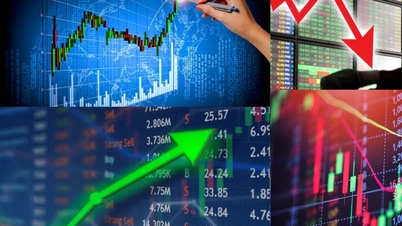











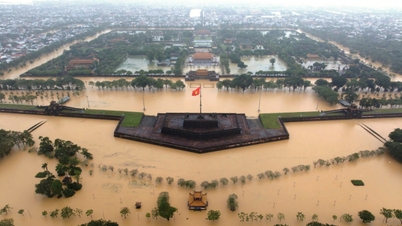
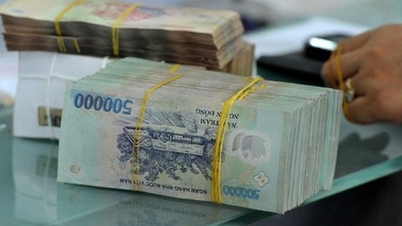

![[Photo] Panorama of the Patriotic Emulation Congress of Nhan Dan Newspaper for the period 2025-2030](https://vphoto.vietnam.vn/thumb/1200x675/vietnam/resource/IMAGE/2025/11/04/1762252775462_ndo_br_dhthiduayeuncbaond-6125-jpg.webp)


































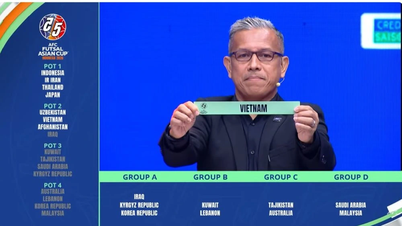





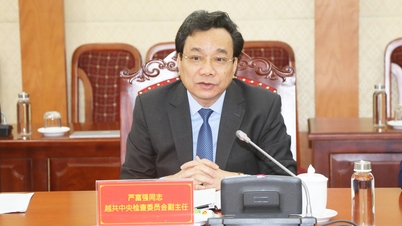

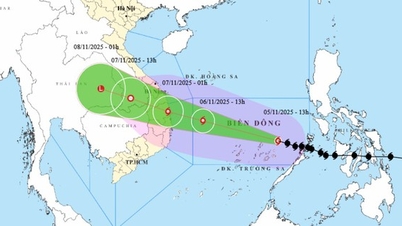






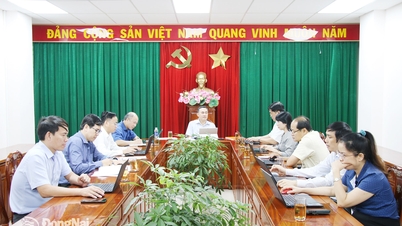

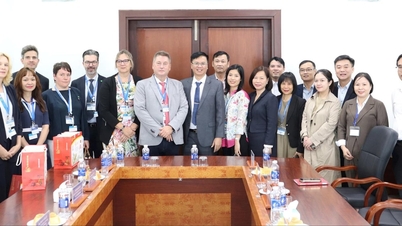





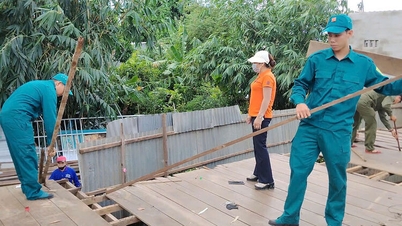

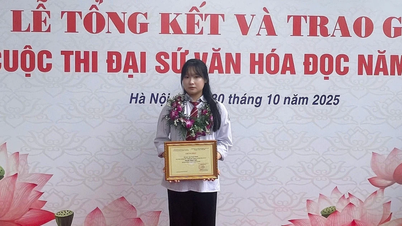















Comment (0)